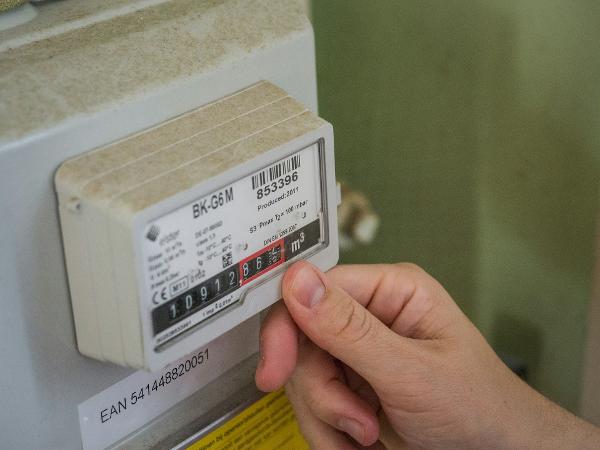Empower Your Home Practical Tips for Energy Efficiency and Savings

In today's world, energy efficiency at home is more important than ever. It can significantly reduce your electricity bills by Impact Electrical and play a crucial role in minimizing your environment.
This blog post will provide practical tips and strategies to make your home more energy-efficient, helping you save money and contribute to a greener planet. Whether you're a homeowner, an eco-conscious consumer, or looking to optimize energy use, this guide is for you.
Understanding Your Home's Energy Use: The Key to Empowerment Common Energy Guzzlers in a Household
Your home's biggest energy consumers are your refrigerator, heating and cooling systems, water heater, and lighting. These appliances run heavily, often without you even realizing it, contributing to higher electricity bills. Identifying these energy guzzlers is essential to effectively targeting them for savings.
How to Identify Areas of Improvement
Conducting an energy audit is a significant first step. You can hire a professional such as Impact Electrical or perform a DIY audit using online tools. Smart meters are also invaluable; they track your energy use in real-time, helping you pinpoint inefficiencies. Once you know where most energy is used, you can focus on reducing consumption in those areas.
Practical Energy-Saving Tips
Low-Cost and No-Cost Strategies
Simple actions like turning off lights when not in use, unplugging electronics, and using power strips can make a significant difference. These small changes can lead to a sense of accomplishment as you see your energy bills decrease. Utilize natural light daily and switch to LED bulbs for better efficiency. Additionally, washing clothes in cold water and air drying can reduce energy use without costing anything extra.
Efficient Use of Appliances and Lighting
Always run full loads in dishwashers and washing machines to maximize energy efficiency. Set your thermostat to an optimal temperature—68°F in winter and 78°F in summer. For lighting, consider installing dimmer switches and motion sensors to avoid wasting electricity when rooms are unoccupied.
The Role of Home Automation
Home automation systems allow you to control your appliances and lighting remotely. Smart thermostats, for instance, adjust the temperature based on your schedule, ensuring efficient energy use. Devices like smart plugs can help you monitor and control the energy consumption of individual appliances, leading to more targeted savings.
Long-Term Solutions for Energy Efficiency:
The Path to Peace of MindUpgrading to Energy-Efficient Appliances and Lighting
Investing in energy-efficient appliances can result in significant long-term savings. Look for ENERGY STAR-rated products that meet strict energy efficiency guidelines. Modern LED bulbs consume up to 75% less energy than traditional incandescent bulbs, making them a worthwhile investment.
The Benefits of Home Insulation and Weatherization
Proper insulation keeps your home warm in winter and cool in summer, reducing the need for constant heating or cooling. Weatherizing your home by sealing gaps and cracks can prevent energy loss, making your home more comfortable and energy-efficient. These measures not only save energy but also improve indoor air quality.
Investing in Solar Panels or Other Renewable Energy Sources
Renewable energy sources, like solar panels, offer a sustainable way to reduce your electricity bills. Although the initial investment is high, solar panels can pay for themselves over time through reduced energy costs and potential government incentives. Additionally, they add value to your home and contribute to environmental sustainability.
Financial Incentives and Planning
Government Programs and Tax Incentives
Many governments offer programs and tax incentives to encourage energy-efficient upgrades. These incentives can significantly offset the cost of new appliances, insulation, or renewable energy installations—research local and federal programs to take full advantage of these opportunities.
Calculating Potential Savings
Understanding the potential savings from energy-efficient improvements can help justify the initial investment. Use online calculators to estimate the reduction in your electricity bill and the payback period for different upgrades. This can guide your decision-making process and help you prioritize investments.
Budgeting and Financing Options
Large projects like solar panel installations or comprehensive home insulation can be costly. Explore financing options such as energy-efficient mortgages or loans specifically designed for green improvements. Many utility companies also offer rebates and incentives for energy-saving upgrades, reducing out-of-pocket expenses.
Conclusion
Energy efficiency is crucial to reducing electricity bills and minimizing environmental impact. You can achieve substantial savings by understanding your home's energy use, implementing practical tips, and considering long-term solutions. Whether through low-cost strategies or significant investments, every step counts.
We encourage you to start small by conducting an energy audit or switching to LED bulbs and gradually make more significant changes. Share this post with friends and family, and leave a comment with your personal experiences or additional tips. Together, we can create a more energy-efficient world.
Remember, every little bit helps, and the savings—in energy and money—will make it all worthwhile. Here's to a more sustainable and cost-effective home!